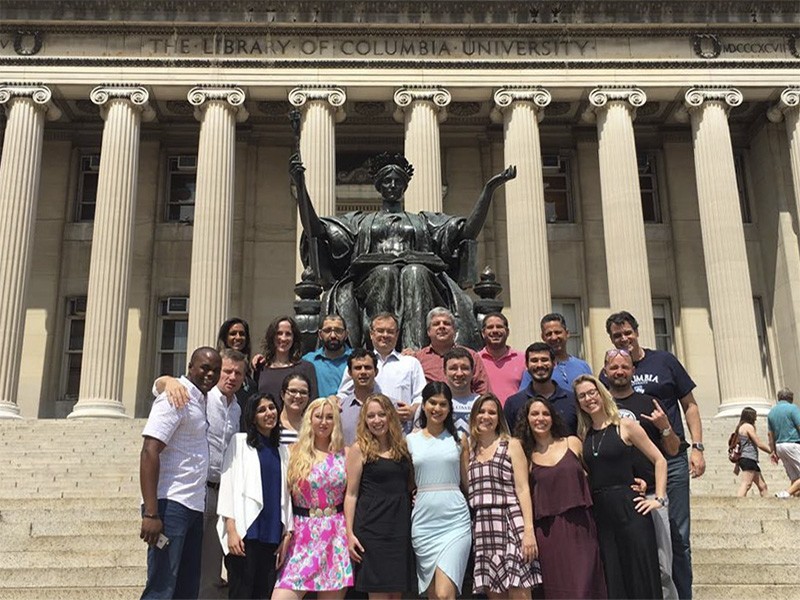Rio Center Stories: Monica Vianna, Global EMPA alumna
Monica Vianna, Global Executive Master of Public Administration (Global EMPA) alumna, shares her experience during the Master’s program, which combined video lectures and exercises with face-to-face instruction via Columbia Global Centers | Rio de Janeiro and on campus in New York.
My name is Monica Vianna and I was part of the Global Executive Master of Public Administration Program (Global EMPA). This was a program held by the School of International and Public Affairs (SIPA) at Columbia University in the City of New York. This was an innovative hybrid program that combined video lectures and exercises with face-to-face instruction via Columbia’s Global Center in Rio and in New York. Besides we had two Summer terms in person at the Columbia University in the City of New York. The Program was designed for working professionals in positions in government, the private sector and NGOs around the world.
I attended a session about this program at the Columbia Global Centers | Rio de Janeiro presented by Professor William Eimicke. After explaining how the program would work, Professor Eimicke said: “This is the day that is going to change the rest of your life.” He couldn’t be more accurate.
This was the most international program anyone could ever think of. Among our classmates, cohort 2 and 2.5, there was an Afghanistan who works for the US federal government, a Pakistan who works for the private sector in Dubai, a Colombian who works for the energy sector in Colombia, a Puerto Rican who works for the US federal government in Haiti, 5 Americans working for the US federal government, for NGOs and for the private sector, a Russian who used to work for the Russian federal government and now works for the private sector, and 11 Brazilians.

I’d like to talk a little bit about how our professional lives evolved during the course of the program. From São Paulo: (1) Lucia Rodrigues – who changed her field from marketing to Corporate Social Investment and (2) Eduardo Mota – who was promoted to Head of IT and shared services of São Paulo State Treasury. He is implementing the fiscal
conformity program which was his final paper for the course and it has become a law. From Rio: (3) myself, who used to work as an attorney for the State University of Rio and I was invited to work as an adviser to a counselor at the General Accounting Court of Rio, (4) Bruno Luna who was promoted to director of economic and risk analysis at the Brazil Securities Commission, (5) Claudio Maes who was invited to work in the investor protection and education department to manage a laboratory of financial innovations in a partnership between the Inter-American Development Bank and the Brazil Securities Commission and (6) Luciano Lanz, who was promoted at the National Development Bank. From Brasilia (7) Barbara Furiatti who started her own lobbing company, (8) Tom Barros, who now is in charge of the new education program for the Brazilian National Treasure, (9) Marcelo Seraphim, who was promoted to Chief of division of regulatory affairs and was invited to join a project at the UN and (10) Will Bueno, who was invited to become the general coordinator of studies and research at the Strategic Affairs Secretary of the Presidency of the Republic and now is running for congressman to represent the state of Minas Gerais, and from Recife: (11) Ricardo Rodrigues, who was promoted to regional manager at the National Development Bank.
To participate in such high-level course in one of the 8 Ivy League Universities in the US, 7 of us, me included, were awarded with scholarships from the Lemann Foundation and Brava Foundation. We would not be able to afford such program without these sponsorships.
I was always very thankful for being part of this program. For those who put it together and for those who made it happen. So, once again, thank you Columbia University, Columbia Global Centers | Rio de Janeiro, Lemann Foundation and Brava Foundation for making this possible.